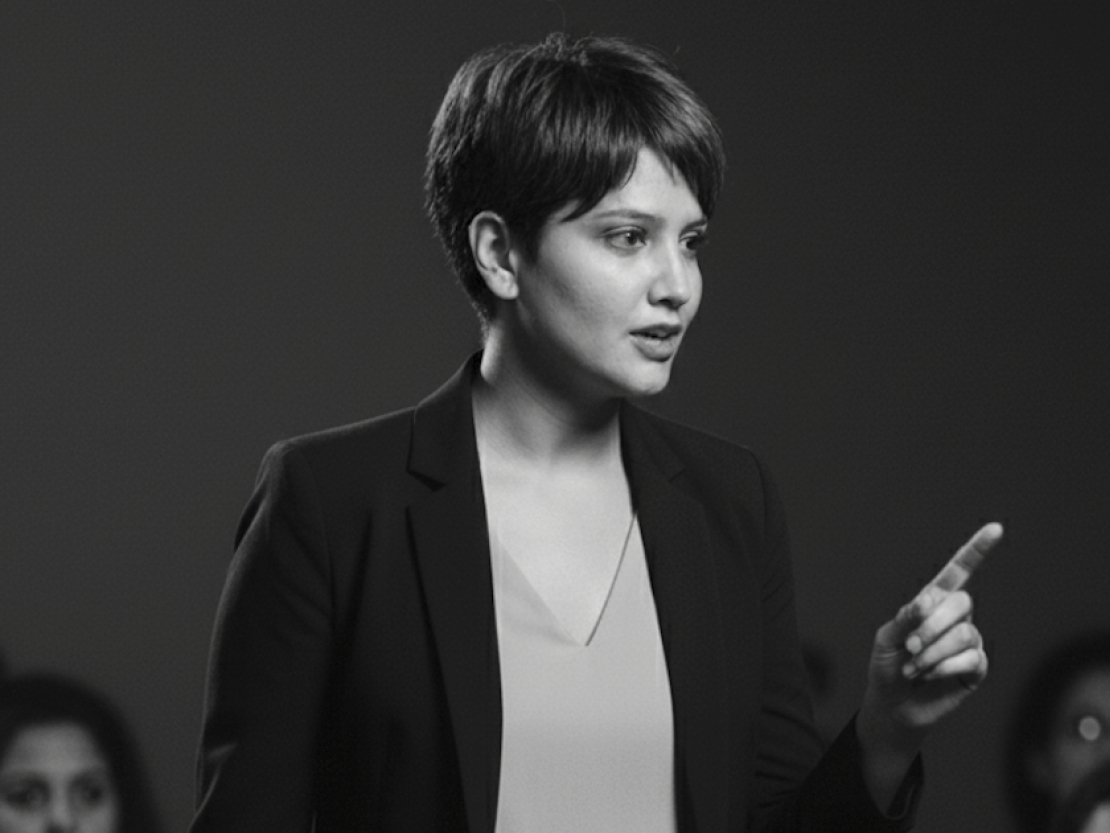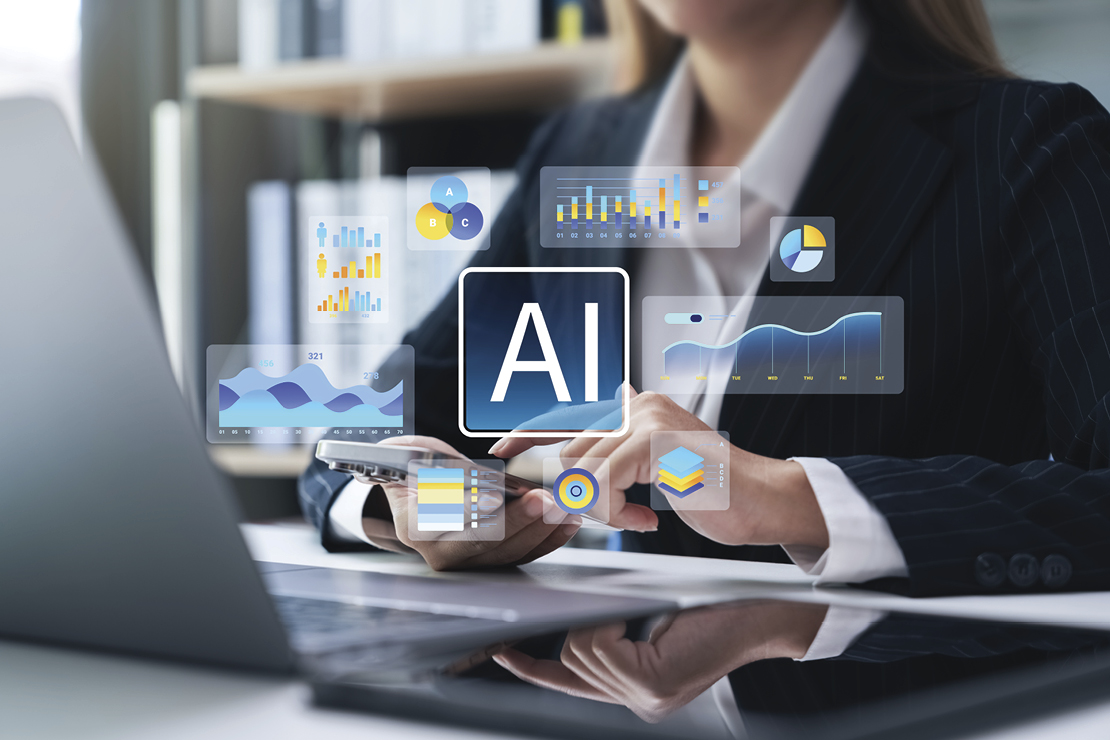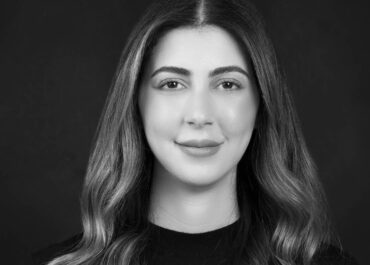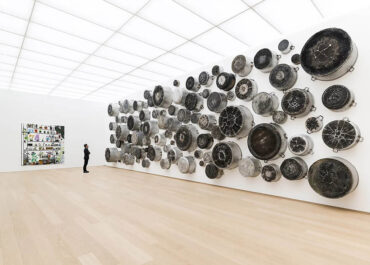Sallyann Della Casa, interim CEO of GLEAC discusses embracing AI in the Middle East

Sallyann Della Casa, interim CEO of GLEAC
When I created GLEAC, after serving as Curator of Culture and People at Careem, my vision for expert, mentor, and coaching communities was rooted in more than a business model—it was a survival model.
Long before books, our ancestors sat around fires and passed knowledge through stories. Collective wisdom has always driven progress, whether in ancient majlis gatherings in Riyadh or fireside storytelling in Dubai. These traditions provided context, meaning, and a supportive network for trial, error, and learning, long before dashboards and data points existed.
Today, when done right, expert communities, coaching circles, and consulting networks are simply modern versions of that same truth. It isn’t just information that changes people, it’s the way knowledge is shared, storied, and made safe. That’s how we build trust. That’s how we grow and create resilience across the GCC and the wider Middle East.
Yet, across the Middle East, knowledge workers and consultants face a dramatic shift as artificial intelligence enters every domain of business. While AI brings new efficiency and scale, there is a critical question: if knowledge loses its original context and human wisdom, especially in the Gulf, what is truly gained?

Sallyann Della Casa, interim CEO of GLEAC
Trust, Storytelling, and Regional Essence
The Middle East has always advanced through spoken traditions, poetry, and majlis culture—from council chambers in Riyadh to partnership negotiations in Dubai. Here, trust is not transactional—it’s woven through narrative. Deals in the GCC, strategic partnerships in Qatar, and investments in the UAE still begin with context and relationships. If AI removes the human layer, Gulf business risks losing the fabric that sustains progress.

Why the Middle East’s Human Capital Matters
The Middle East is experiencing unprecedented economic transformation. Saudi Arabia has allocated $20 billion to AI initiatives as part of Vision 2030, while the UAE is rapidly advancing toward its goal of becoming a global AI hub by 2031. In Qatar, digital investments are projected to surpass $5.7 billion by 2026, driven by its National Digital Agenda 2030 and strategic programs like TASMU.
Yet, this AI revolution reveals a paradox: you cannot build a knowledge economy on machines alone—human wisdom and regional context remain essential for sustainable progress. To leave them behind in the AI revolution is not just a loss of efficiency—it erodes the context and meaning essential for effective outcomes.
Gulf consulting, shaped by years of navigating gaps where infrastructure lagged, must evolve. Some traditionally human-led tasks will change as digital rails are laid, but consultants are not obsolete; they must shift from simply providing knowledge to curating meaning, context, and trust at scale.
Majlis-Trained AI: A New Vision
Most AI models today are trained on global data, lacking the nuance of GCC negotiations, the weight of reputation in Sharjah’s family businesses, or the trust built inside ministries in Muscat. Envision a regional AI trained on MENA business stories: consultants solving market challenges in Abu Dhabi, building transnational trust, and bridging generations across analog and digital eras. This AI would amplify—not replace—human wisdom, contextualising its outputs for Gulf realities and helping carry local expertise worldwide.
Just as the U.S. created StoryCorps that collects human stories, imagine the GCC building an AI model from oral traditions, poetry, consultant experiences, and negotiation stories, so that artificial intelligence genuinely “thinks in our context.” That is the breakthrough: technology that amplifies—and does not erase—consultant wisdom.

Communities Before Companies
Most of the world’s best-known expert networks and consulting giants—GLG, Intro, McKinsey, Accenture—have built impressive platforms and brands. But here’s the truth: they’ve not been building communities.
Most treat experts as interchangeable assets, rather than communities of people also in transition. They fail to see that the very professionals who fuel their models—largely Gen-X consultants—are themselves navigating the biggest shift of their careers.
We intentionally built GLEAC differently, connecting experts, mentors, and consultants across generations and geographies—using AI social capital agents we built to help them grow and reconnect to their own networks, share knowledge, validate skills, and create new opportunities together within.
Communities, not companies, are what will carry people through. In the AI era, belonging may be one of the last standing moats a business has. Technology can replicate process, but it cannot replicate trust. The most resilient models will be those that help experts learn from each other, form partnerships, and build new business models together.

The Path Forward in MENA & Gulf Consulting
Success in today’s GCC consulting market demands three shifts:
• Cultural AI Integration: Build AI systems trained on GCC and MENA business protocols, Arabic communication, and traditional decision-making.
• Community-Driven Networks: Launch platforms to connect experts across the Gulf, preserving cultural context while enabling knowledge transfer with emerging talent.
• Meaning-Centered Consulting: Evolve from pure data delivery to meaning curation, guiding clients on not just what AI suggests, but why it matters in the Middle East business environment.
From Tradition to Transformation
Recently, I participated in a regional debate at the Exhibition, AI is a Vampire, by artist Kris Luckraj and was asked to argue “Can AI feel?”
My answer was clear— AI can calculate, optimise, and predict, but it has no lived stories and thus cannot feel. Love is a word to AI. Love is a story to every single one of us. And in the Arabic region, a mother’s love can be tasted in her dish of machboos.
Meaning is MENA’s legacy and advantage. From fireside wisdom and council debates to digital transformation, story and context build trust and security for progress. As the GCC and the Middle East invest billions in AI and digital transformation, they face a universal challenge: maintaining the wisdom that makes the region a global business leader. Gen-X consultants, mid-career professionals, and expert advisors remain irreplaceable as translators between tradition and innovation. The key is not whether consultants survive the AI wave, but whether the region continues to honor its stories and wisdom—as the ultimate drivers of progress.















